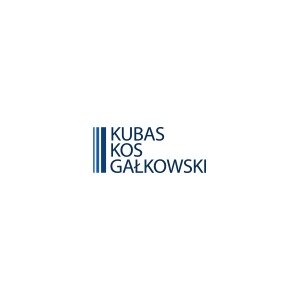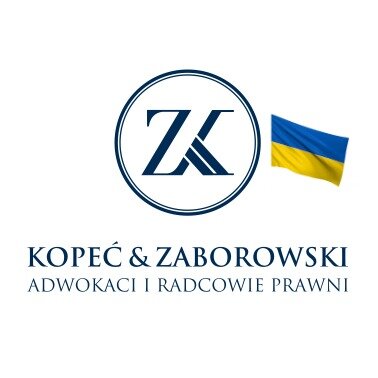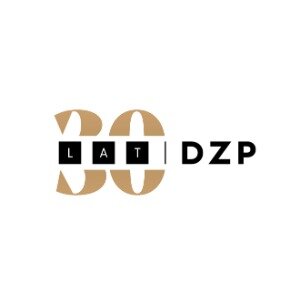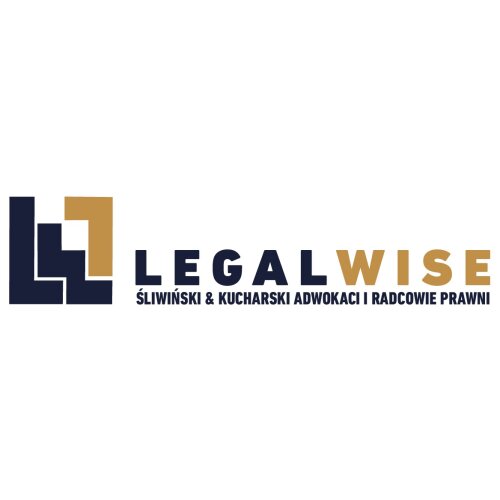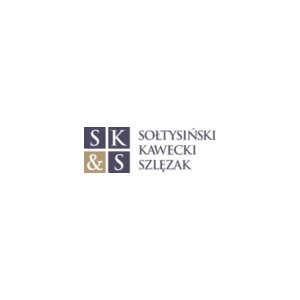Best Renewable & Alternative Energy Lawyers in Warsaw
Share your needs with us, get contacted by law firms.
Free. Takes 2 min.
List of the best lawyers in Warsaw, Poland
About Renewable & Alternative Energy Law in Warsaw, Poland
Renewable and alternative energy law in Warsaw, Poland, covers the rules, regulations, and policies that govern energy sources considered to be environmentally friendly and sustainable. This includes solar, wind, hydroelectric, geothermal, biomass, and emerging technologies in energy production. As Poland works to transition from coal reliance to greener solutions, both individuals and businesses are increasingly participating in renewable energy initiatives. Legal frameworks are adapting to support investment, innovation, and compliance at both the national and municipal levels. In Warsaw, the legal landscape is shaped by Poland’s national energy policies as well as specific city-level regulations aimed at reducing emissions and encouraging sustainable energy use.
Why You May Need a Lawyer
There are several situations where legal assistance is essential regarding renewable and alternative energy projects in Warsaw:
- Understanding and complying with complex permitting processes for solar panels or wind turbines.
- Negotiating power purchase agreements or contracts with local utilities.
- Navigating government subsidies, grants, or investment incentives for renewable energy projects.
- Dealing with disputes related to land use or property rights for energy installations.
- Meeting environmental impact assessment requirements.
- Resolving issues related to grid connection and energy distribution.
- Understanding changes to national or EU energy laws that impact your rights or responsibilities.
- Ensuring compliance with emission or sustainability standards.
- Securing intellectual property for new energy technologies.
These complexities mean that the assistance of a knowledgeable lawyer can save time, reduce risk, and help ensure project success.
Local Laws Overview
Poland, as a member of the European Union, must comply with EU directives on renewable energy and emissions. At the same time, Poland’s national policies shape how those directives are implemented, while local authorities like the City of Warsaw may introduce additional regulations tailored to urban challenges.
Key aspects of local law include:
- The Energy Law Act, which regulates the entire Polish energy sector, including renewable sources.
- The Renewable Energy Sources Act, which details the framework for support, connection, and operation of renewable installations.
- Environmental Protection laws, especially regarding siting and emissions.
- Municipal building codes and urban planning regulations affecting installation of renewables in Warsaw.
- Subsidies, grants, and incentives offered by both national and local governments for green energy projects.
- Requirements and processes for connecting to the national electricity grid.
- Compliance with EU targets for renewable energy use and the reduction of greenhouse gases.
Interpreting and adhering to these layers of law can be challenging without legal advice.
Frequently Asked Questions
What types of renewable energy projects are most common in Warsaw?
Solar panel installations for homes and businesses, small-scale wind turbines, biomass heating systems, and participation in community energy projects are the most prevalent.
Can I install solar panels on my residential property in Warsaw?
Yes, private homeowners can install solar panels, but certain permits, building codes, and sometimes local association consent may be required. A lawyer can help ensure compliance.
Are there financial incentives for renewable energy projects in Warsaw?
There are subsidies, tax breaks, and grant programs at both the national and municipal levels to encourage renewable energy adoption. Eligibility and application processes can be complex.
Do I need a building permit for renewable energy installations?
Most renewable energy installations require some form of planning or building consent from municipal authorities, especially for external or structural changes.
How can I connect my renewable energy system to the power grid?
You must apply to the local grid operator and comply with technical, contractual, and sometimes environmental requirements. Legal guidance can simplify the process.
What are the environmental assessment requirements?
Significant installations may require an environmental impact assessment. This process is governed by both national and local environmental protection laws.
How does EU law affect renewable energy projects in Warsaw?
EU directives set targets and general frameworks which Poland implements through national law. This influences everything from incentive schemes to technical standards.
Can businesses sell surplus renewable energy to the grid?
Yes, businesses can sell their surplus energy, subject to contracts and regulatory compliance with the national grid operator.
Are there risks or penalties for non-compliance?
Yes, non-compliance with energy, environmental, or construction laws can result in fines, orders to cease operations, or removal of installations.
How can a lawyer assist with renewable energy projects?
A lawyer provides guidance on legal compliance, represents clients in negotiations or disputes, assists with applications for incentives, and helps navigate regulatory complexities.
Additional Resources
For further information, advice, or support, consult these organizations and governmental bodies:
- The Ministry of Climate and Environment of Poland - oversees energy policy, including renewables.
- Energy Regulatory Office (URE) - regulates the Polish energy market.
- National Fund for Environmental Protection and Water Management - administers grants and financing for green projects.
- Warsaw Municipal Office, Department of Infrastructure - handles local permits and planning for energy installations.
- Chamber of Commerce for Renewable and Alternative Energy - professional association supporting industry participants.
Next Steps
If you are considering a renewable or alternative energy project in Warsaw, or if you are facing legal challenges related to energy compliance, follow these steps:
- Gather all relevant documents connected to your property or project, including contracts, plans, and correspondence with authorities or suppliers.
- Research any subsidies, permits, or regulatory requirements that may apply.
- Consult with a lawyer specializing in renewable and alternative energy law. An initial consultation will help clarify your rights, obligations, and the best pathway forward.
- Stay informed about changes in national and EU law, as regulations in this field evolve quickly.
- Engage with local professional organizations or government bodies for updated guidance and support.
Taking these steps will help ensure your project is successful, compliant, and positioned to benefit from available incentives.
Lawzana helps you find the best lawyers and law firms in Warsaw through a curated and pre-screened list of qualified legal professionals. Our platform offers rankings and detailed profiles of attorneys and law firms, allowing you to compare based on practice areas, including Renewable & Alternative Energy, experience, and client feedback.
Each profile includes a description of the firm's areas of practice, client reviews, team members and partners, year of establishment, spoken languages, office locations, contact information, social media presence, and any published articles or resources. Most firms on our platform speak English and are experienced in both local and international legal matters.
Get a quote from top-rated law firms in Warsaw, Poland — quickly, securely, and without unnecessary hassle.
Disclaimer:
The information provided on this page is for general informational purposes only and does not constitute legal advice. While we strive to ensure the accuracy and relevance of the content, legal information may change over time, and interpretations of the law can vary. You should always consult with a qualified legal professional for advice specific to your situation.
We disclaim all liability for actions taken or not taken based on the content of this page. If you believe any information is incorrect or outdated, please contact us, and we will review and update it where appropriate.






